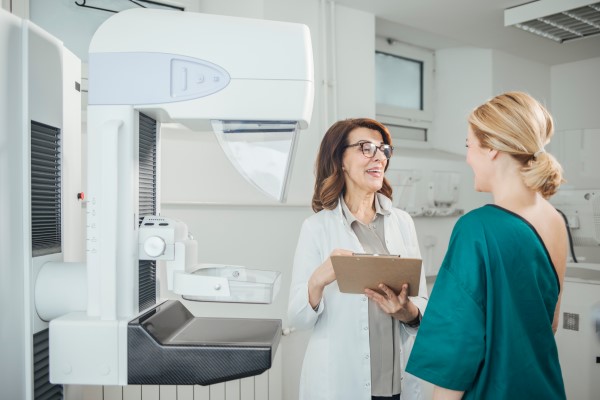What to Ask an Oncologist About Breast Cancer

If you have a cancer diagnosis, your oncologist will be an indispensable asset moving forward. Finding out you have breast cancer can be a shock, but this does not have to be a death sentence or even ruin your quality of life. Though you will experience some changes, you can be prepared and find relief. As you meet with your doctor, there are some important questions you should ask.
Symptoms and effects of breast cancer
Breast cancer can affect women of all ages, but it is most common in women over the age of 50. There are some clues that a woman may have this disease. Some of the most evident include lumps or swelling of all or part of the breast. There may also be breast or nipple pain. Some women with breast cancer may have nipple discharge or flaking skin of the breast. The shape of the woman’s breast may also change.
Ask about the outlook
One of the first things a patient will want to ask their oncologist is whether recovery is possible. Fortunately, if detected and treated early, patients can beat breast cancer and survive the disease. When a person meets with the doctor, the patient should ask about how much pain and discomfort to expect. The doctor will be frank when discussing survival rates and recovery timetables.
Ask about treatments
Once the patient understands what they are up against, it is critical to know how to combat the disease. The oncologist may start by performing surgery to remove part or all of the breast. Sometimes, only removing the lump itself will be enough to get rid of the cancer. In more serious cases, the doctor may have to remove both breasts. Radiation and chemotherapy may also be the right approach when the cancer cells are growing and spreading quickly.
Ask about prevention
Some patients may visit the oncologist thinking they have breast cancer but ultimately do not. Still, such a person will want to know how to continue to keep the disease away. There are some effective steps that people can take to maintain healthy breasts. Women should have a regular mammogram to screen for breast cancer. Exercise and maintaining a healthy body weight can help stave off the condition. Also, avoiding alcohol will reduce a person’s risk.
Ask about self-care
Before and after breast cancer treatments, the patient should continue to visit the oncologist. The doctor will examine the patient and conduct follow-up appointments. Women should watch their diet. It is also important to get plenty of rest and exercise.
Your oncologist is critical to your health
If you have learned that you have breast cancer, you may be scared. It is normal to feel this way, as this is a serious disease. Your oncologist will work closely with you to ensure that you get the right care and treatment. If you believe you have this disease, do not delay calling your doctor. The sooner you can battle the illness, the more likely you are to restore your health.
Get more information about Lindenberg Cancer & Hematology Center in Marlton at https://lindenbergcancer.com.
Check out what others are saying about our services on Yelp: Read our Yelp reviews.
Recent Posts
A surgical oncologist helps diagnose and treat cancer using advanced procedures and often works closely with medical and radiation teams to coordinate care. Many patients hear the term after an abnormal scan, biopsy, or referral, and want a clear explanation of what this specialist does. Understanding how this specialty fits into cancer care can make…
Getting diagnosed with ovarian cancer is overwhelming to say the least, and many patients leave the doctor’s office thinking of questions they wish they had asked. Fortunately, you can bring these questions to your next appointment with the oncologist. Patients are encouraged to ask any questions they have to better understand their diagnosis, explore treatment…
Leukemia treatment aggressively targets cancer cells, but healthy cells can also be affected, leading to side effects. An oncology team can prevent problems early and ease symptoms fast. Clear expectations and communication help patients stay safer and more comfortable during care. Many side effects remain manageable when patients report their symptoms early, and supportive care…
Hematologic disease treatment often begins long before a formal diagnosis, because the earliest warning signs appear in everyday life. Fatigue, easy bruising, or frequent infections may not seem serious at first, yet they sometimes indicate that the blood, bone marrow, or lymphatic system needs attention. Understanding which symptoms matter, how long they last, and when…


